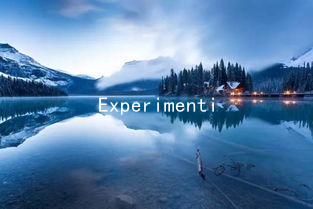The Science of Love: When Are Feelings Worth the Effort to Reclaim?
Love is a complex and multifaceted emotion that has been the subject of study across various disciplines for centuries. In the realm of romantic relationships, understanding when feelings are worth reclaiming can significantly impact our happiness and emotional well-being. This article delves into the science of love, exploring the psychology behind romantic feelings and offering practical advice for determining when it’s time to make the effort to reclaim those feelings.
At the heart of romantic relationships lies the concept of attachment, which is fundamentally influenced by our early experiences with caregivers. Psychologist John Bowlby introduced attachment theory, explaining that our early bonds create templates for future relationships. Individuals with secure attachments are typically more confident in expressing their feelings and seeking support, while those with anxious or avoidant attachments may struggle with vulnerability and intimacy. Understanding your attachment style can provide insights into why certain relationships feel worth the effort and others do not.
In any romantic relationship, feelings of love can ebb and flow. It’s essential to distinguish between fleeting feelings and deeper emotional connections. Sometimes, conflict or life stressors can cloud our perception, making us question the value of our relationships. During such times, reflecting on the foundational aspects of your relationship can help determine if the feelings are worth reclaiming. Consider factors like shared goals, mutual respect, and emotional support. If these cornerstones remain intact, your relationship may still hold significant value.
Effective communication plays a pivotal role in rekindling feelings. When misunderstandings arise, addressing them directly and empathetically can prevent resentment from festering. This involves not just speaking your truth, but also actively listening to your partner’s concerns. Use “I” statements to express your feelings without sounding accusatory. For example, rather than saying, “You never listen to me,” try, “I feel unheard when our conversations dont seem balanced.” This technique fosters a safe space for open dialogue, which is crucial for emotional repair.

Another essential element is the practice of gratitude. Regularly expressing appreciation for your partner—even for small things—can reignite feelings of closeness. Research indicates that couples who engage in gratitude practices tend to have higher satisfaction levels in their relationships. It’s often the little things, like acknowledging your partner’s hard work or expressing affection, that can cements bonds. Consider introducing a daily or weekly ritual where you share things you appreciate about one another.
Moreover, engaging in shared activities can strengthen emotional connections. Couples who play together often stay together; fun and laughter can revive joy and intimacy that may have dimmed over time. Whether it’s trying out a new hobby, embarking on adventures, or simply spending quality time together, shared experiences can reignite those original attractions that brought you together in the first place.
Finally, sometimes, despite best efforts, feelings may not return. Recognizing when to let go is just as crucial as knowing when to invest time and energy in reclaiming feelings. Reflect on whether the relationship aligns with your values and long-term happiness. It’s essential to understand that prioritizing your emotional well-being is not selfish; it’s a necessary act of self-love.
In conclusion, the science of love illustrates that feelings can be both resilient and fragile, shaped by our experiences, communication styles, and actions. Understanding when feelings are worth the effort to reclaim involves a blend of self-reflection, effective communication, gratitude, and shared experiences. By nurturing these aspects, you can cultivate a deeper and more fulfilling romance, or, if necessary, walk away with greater clarity and peace.





